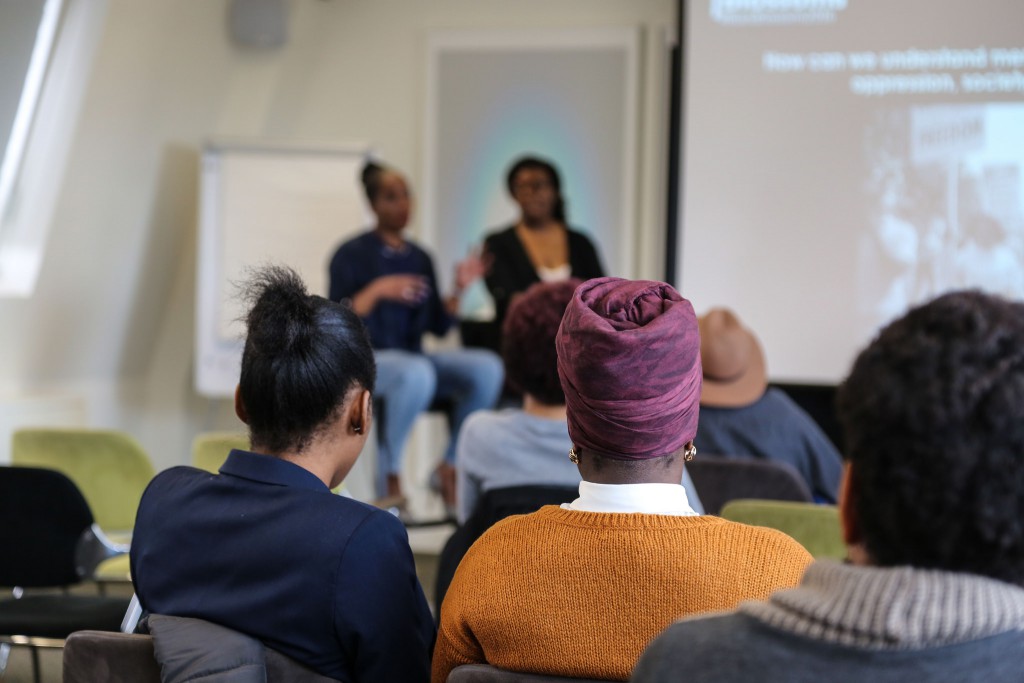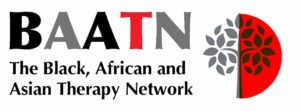Author: Dr Isha Mckenzie-Mavinga
Transcultural Counsellor and Supervisor

It was never our job to take care of the slave master and his family, but once upon a time this was the enforced role on African peoples through slavery. Even though our descendants were being slaughtered, maimed and abused, we were expected to care for our abusers. We are tired and worn down by the constant struggle to emerge from historical, intergenerational and every day traumas instilled by racism and the pressure to assimilate and not be fully ourselves.
Our current responsibility is therefore to take care of ourselves and our own families. Our need to liberate ourselves must be on warriors backs and not by increased voluntary servitude. In other words, by rushing to the assistance of white people and institutional distress about the cause of black lives matter.
Since the killing of George Floyd and the resurgence of black lives matter enquiries about therapy and support for training courses and groups of people working in the caring professions have increased. Caution about self-care and the mental and emotional toll of responding is needed.
Suddenly professionals are crying out for support to unravel concerns about institutional racism. Some are genuinely traumatised as are we by news items that suggest outrage and critical mass of pain, disappointment and the need for institutional racism and statues representing oppression to be dug out and eliminated.
For some this is traumatising. As the status quo changes it may feel scary, and a threat to their mental health. In psychotherapy practice and teaching I have noticed that white people expect us as black people and people of colour to lift them out of their distress about the monster they have created for centuries within institutions that were built on our backs. The collusion of hatred and oppression of our ancestors has perpetrated ways to keep people of colour as underlings and in servitude. This is born out once again by statistics evidencing our over representation in the mental health system the penal systems, those impacted by the outrageous Windrush scandal and the high level of our people who perished due to COVID-19 and lack of attention to adequate protection of health workers. All this points to the problem of decreased levels of our survival in the West.
The current climate of righteous indignation is a surge or catharsis from the trauma of what has been sublimated in the collective unconscious, but blatantly obvious for many sufferers and observers who have tried to draw attention to this matter. Assimilation strategies and defences are laid bare as we make attempts to survive the trauma of racism as it is now exposed and in our faces.
In my writing and in training I have mentioned black Western archetypes, (Mckenzie-Mavinga 2009) step and fetch it’ and the ‘Mammy’ archetype portrayed in those who feel a duty to caretake individuals and groups displaying guilt about their role in maintaining a racialised status quo, oppression, misrepresentation and miseducation of black people and people of colour. Not to mention legalised murder by so called law enforcers and mental health system staff by using over medication and over restraint to shut us up .
My Doctoral study (2006) highlighted the process that occurs when racism has been identified on training courses and white students appeal to their black peers for absolution. A form of distraction from the pain of racism their selfcare.
White privileged individuals who are part of racist Eurocentric systems sometimes feel they are losing something by giving up their privileged positions to create anti-racist alliances with us so that we can liberate ourselves, our families and our clients. They do not realise that their change can also liberate them and they load pressure onto us to educate them and save them from their feelings of guilt.
Black lives matter is showing that we are collectively emerging from the trauma of our past and have high expectations of rising above the intimidation, undermining and crushing collective mental stomping on our peoples.
This gross situation that we have been living with in the western World and its effects in Africa, Asia and the Caribbean has created mental, physical, spiritual and emotional malaise. The underdeveloped mentality of the privileged white has caused them to feel guilty that we have exposed the treatment of us and we are now saying that it is enough.
An aspect of slave mentality that remains is where we put our own well-being and sorrow aside and we rush to educate, soothe and support the fragile psyche of a people who have been publicly found out and challenged on the role of suppressing us throughout history.
We want their allyship but it is not our job to take care of them. We often forget that we have our own wounds to heal and we put these aside and rush to show white people what they should do to recover from their guilt. This act often takes priority over our own needs for recovery and survival.
It is our job to focus on our own recovery and when we feel strong enough, when the pain has dissipated when we feel loved, supported, nourished and respected enough then we may use our experiences and skills to inform those in the white privilege group how to train themselves up and be better for us.
We are at risk of burnout and mental ill-health if we are trying to convince ourselves that this change can occur by Mammying. They convinced some of us that our brains are underdeveloped and that our best is all that we can achieve rather than our maximum potential. These projections are invalid and racist. Their emotional capacity is underdeveloped because many have been trained not to feel, so it is difficult for them to empathise and accept that white racism hurts us deeply. This intergenerational trait gave them licence to kill and maim us during slavery.
They are slow in learning humaneness and they present to us as though inadequate and not knowing. The same character projections that they laid on us. This has been called ‘white fragility’ (DiAngelo 2019) The truth is that they are fearful of being called out on their racism. Facing up to their responsibility to change white racist attitudes is a challenge that they are reluctant to take on. They will come to us looking humble wanting our pity and needing to be
rescued. They are pitiful and they try to make us think they do not know how to change their inadequate world of white privilege and patriarchy. We may become confused and buy into this need for our care. What are they offering us? We are intelligent people we need to stop and consider whether we are being rewarded and compensated for our emotional physical and spiritual labouring to bring institutional racism to an end.
Internal racism (Davids 2011)
We become inhibited and embarrassed by their silence. It is difficult to sit with and we jump to rescue them from their difficulties and inhibited stance. We want them to pull their heads out of the sand and boldly speak out to each other and get their act together, but the pain inside us is excruciating and we want to recover from it so we try to rescue them. They are slow to learn what they need to know to help each other and we do not need to save them.
We are prone to driveness and compulsive independence as components of internalised racism we were driven during slavery and expected to work over and above human capacity without rest and rejuvenation. Without this replenishment it was difficult to see who we are because our gaze became distorted and we just kept going for the survival of our people and generations to come. Our people are trained to watch each other being slaughtered, not cry out for help and not create close communities that fight for each other. This heinous lie kept us separate and subservient. We therefore need to be vigilant with each other by reinforcing our connections and self-care.
Now we have a job to do on ourselves and with each other which is to expel the negative ways we cope with daily racism and self-harm instilled by racism. Together we can be stronger clear of thinking and develop a positive black gaze that reflects who we really are and gives us the opportunity to emerge from ways that are not healthy for us. We need to remember that healing from the hurts of our past as black people and people of colour is a priority over the teaching of a privileged group and their assumed white power. We need to recover from the mental and emotional wear and tear that the struggle to survive racism imposes on us. This is how we strengthen our minds and end voluntary servitude.
References
DiAngelo, R. (2019) White Fragility: Why It’s So Hard for White People to Talk About Racism. Red Globe Press.UK
Fakhry Davids, M. (2011) Internal Racism: A Psychoanalytic Approach to Race and Difference. Penguin Random House. UK
Mckenzie-Mavinga. I. The Challenge of Racism in Therapeutic Process. Palgrave Macmillan.UK

Brilliant! I have often argued that we need to work together if we want change but seldom stop to think enough about the amount of time that we as a people will need to recover, to heal and breathe before engaging in teaching, leading and negotiating. That being said, the world is moving quickly and I think that if we sit and allow things to go in the direction that they are, it will only get worse. Heal yes!! advocate yes and teach yes because as you have correctly stated, the oppressors have a dysfunction and we need to be strong enough to face that together with our own experiences; but we must progress in mind and spirit always and claim our rightful space. In an ideal world, they too (oppressors) would spend time reflecting on themselves, their belief systems and the ways that they have been educated, to effect positive change.